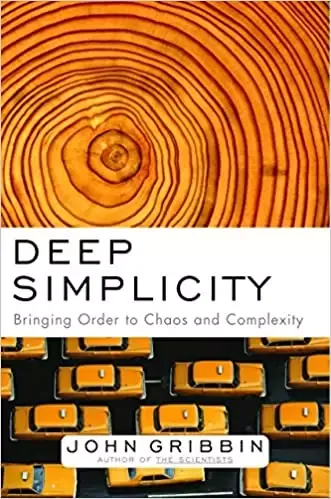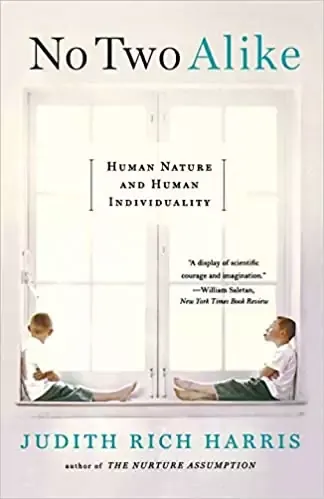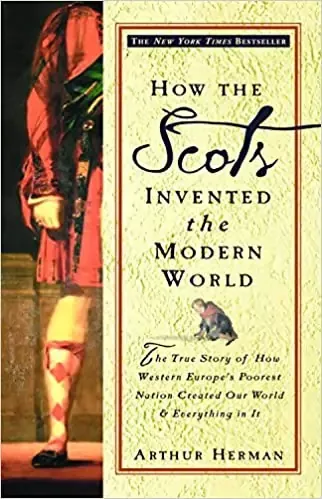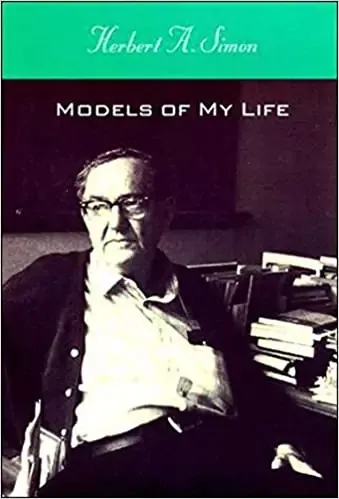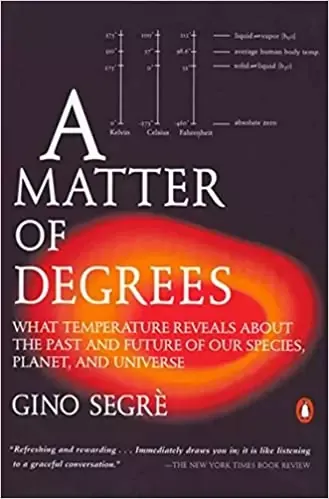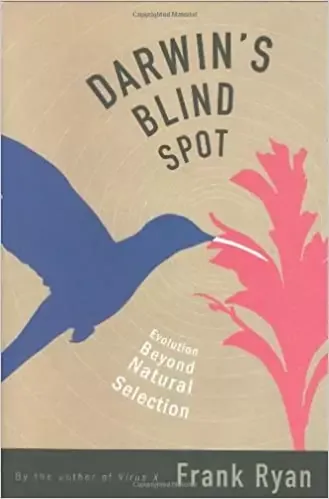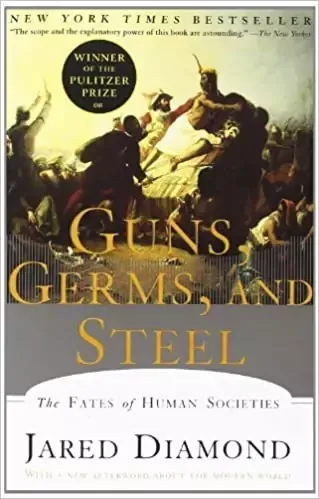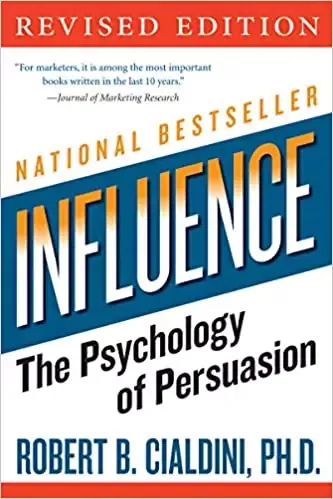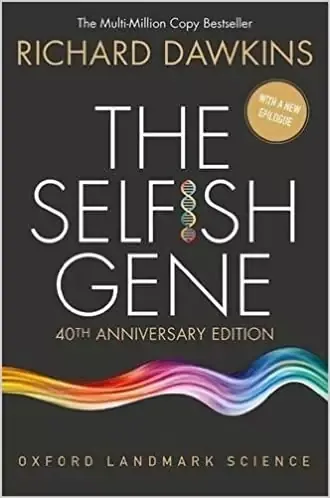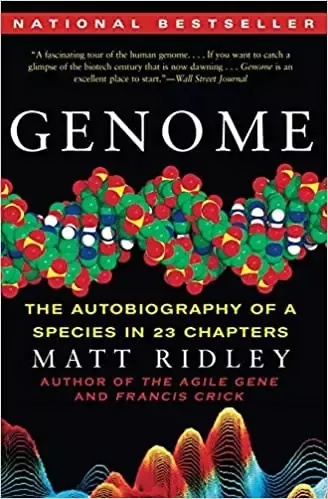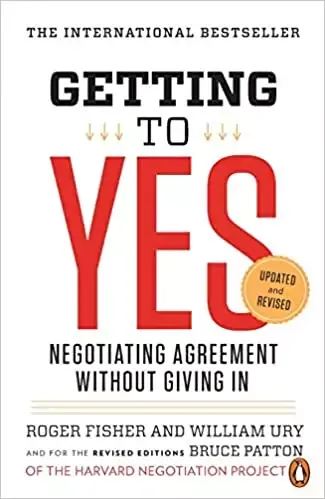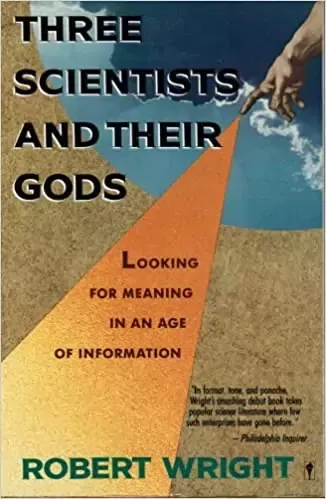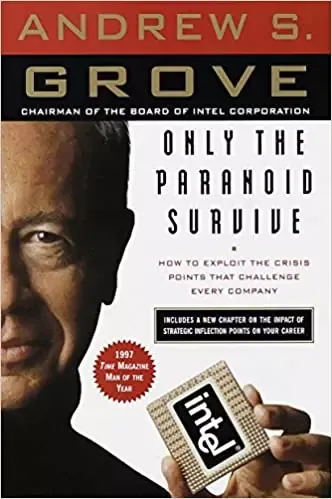Reading this book really surprised me! I have learned too much from this book, and there are too many changes for it. Let me briefly talk about the overall gain for me:
This book can be summarized in one sentence: the complex world is iterated using simple rules. And there are many things hidden behind this sentence, including premises, assumptions, reasoning, and so on. It is necessary to think about it.
If you sum it up in one sentence, there may be very simple rules behind a complex system. Don't be scared by the complex appearance. If summed up in two sentences, there is any possibility of chaos, don't try to predict the future.
If you use three sentences to summarize, don't be confused by complicated appearances, face the problem scientifically, and try to solve it with scientific laws.
2. No Two Alike
by Judith Rich Harris
The author of the controversial "The Nurture Assumption" tackles the biggest mystery of psychology: What makes people differ so much in personality and behavior?
The search leads Judith Rich Harris into fascinating byways of science- from classic experiments in social psychology to cutting-edge research in neuroscience, from studies of twins to studies of ants.
Harris's solution is startlingly original: the first completely new theory of personality since Freud's. This is the story of a scientific quest, but it is also the story of a courageous woman who refused to be satisfied with "what everyone knows is true".
Perhaps because of the author’s inability to graduate, he has a bit of a sense of competing with academics in his writing.
The use of words is very emotional, and he spends too much space criticizing other scholars and academics that the author can’t see but instead shifts the book’s content. focus. This way of writing makes people question the author's research objectively...
3. Ice Age
by John & Mary Gribbin
Mainly introduce the scientific development history of the Ice Age in the Victorian era. In the early years, scientists in northern Europe used catastrophism to explain the formation of erratic boulders, thinking that it was a disaster similar to the biblical flood recorded in the Bible.
Scotsman James Hutton put forward uniformitarianism in the mid-1990s and denied catastrophism.
He believed that the earth has been affected by wind and volcanic weather for a long time. Ice Age is a disaster for mankind, but Ice Age is a stage in the long-term change of the earth.
4. How the Scots Invented the Modern World
by Arthur Herman
The True Story of How Western Europe's Poorest Nation Created Our World and Everything in It" by Arthur Herman.
Recommended by Charlie Munger, it must be a boutique.
The title of this book seems to be grandiose, but historical facts cannot be denied. Many modern disciplines and all aspects of social systems were laid by the Scots in those one or two hundred years.
This book explains the miracle of Scotland: Scotland at the end of the seventeenth century was still the poorest and most backward country in Europe, but in the middle of the eighteenth century, it burst out with amazing energy.
The people of Hume and Adam Smith can be said to have created an era of enlightenment no less than Socrates and Aristotle.
In the seventeenth and eighteenth worlds shrouded in religion and theology, the Scots enlightened by the spirit of skepticism and realism stood out and led the times.
I can't help feeling that the liberation of intelligence has had a huge impact on the vitality of mankind. And how important is the atmosphere of equality and freedom and the spirit of realism to nurture new ideas!
It can be said that Charlie Munger's ideological foundation is rooted in this era.
5. Models of My Life
by Herbert A. Simon
This is a smart person who can learn anything by himself from books. I can understand Feynman's kind cleverness, the kind of intuitive comprehension, and thinkers who are accustomed to examples, although they are much better than ordinary people, you can still count on learning a little learning method from him.
But Simon is not the case.
He is involved in many fields, each of which seems to be easy to do. He never needs guidance. He reads books instead of traveling, reads manuals to learn foreign languages, and reveals the wisdom of the Jews. I started to read happily and ended in shame.
To be honest, apart from surprise, there is not much to gain. I still prefer the author who likes to study the thinking process, Polya, Feynman's book, I often bring it with me.
6. A Matter of Degree
by Gino Segre
What Temperature Reveals About the Past and Future of Our Species, Planet, and Universe. This book provides "everything about temperature" as we can imagine. The author believes that temperature is everything.
In this book, he "explores the versatility of science with the help of temperature measurement." And when we read the last chapter, we can really appreciate his “hope to use temperature as a guide to explore some of the great scientific concepts of the past and present”.
Fortunately, we still have the happiness of knowing. There are too many worthless things in life. If you have a high school foundation in physics, chemistry, and biology, this book will definitely help you try to challenge yourself to get close to the most intelligent brain in the world.
A real masterpiece teaches you what it means to understand in a simple way.
On the other hand, our bureaucrats and scholars are really abominable, making the campus almost a dead desert without temperature.
7. Darwin's Blind Spot
by Frank Ryan
Amazon's synopsis: While Charles Darwin's vision of evolution was brilliant, natural selection ignores a crucial force that helps to explain the diversity and wonder of life: symbiosis.
In Darwin's Blind Spot, Frank Ryan shows how the blending of life forms through symbiosis has resulted in gigantic leaps in evolution.
The dependence of many flowering plants on insects and birds for pollination is an important instance of symbiosis. More surprising maybe is the fact that our cells have incorporated bacteria that allow us to breathe oxygen.
And the equivalent of symbiosis within a species -- cooperation -- has been a vital, although largely ignored, force in human evolution. In Ryan's view, cooperation, not competition, lies at the heart of human society.
Ryan mixes stories of the many strange and beautiful results of symbiosis with accounts of the dramatic historical rivalries over the expansion of Darwin's theory. He also examines controversial research being done today, including studies suggesting that symbiosis among viruses led to the evolution of mammals and thus of humans.
Too often Darwin's interpreters have put excessive emphasis on competition and struggle as the only forces in evolution. But the idea of "survival of the fittest" does not always reign. Symbiosis is critically important to the richness of Earth's life forms.
8. Guns, Germs, and Steel: The Fates of Human Societies
by Jared M Diamond
The author uses his knowledge of many years of basic research in biology and anthropology to understand the evolution of mankind in the 7 million years of the earth and the evolution of society in the past 13,000 years, in an attempt to include all regions and ethnic groups in the world as retrospective Presumably, to study and analyze the trajectory of human history and explore the fate of society.
The author is also the author of "The Third Chimpanzee by Jared Diamond" (The Third Chimpanzee by Jared Diamond), If "Guns, Germs, and Steel" is a natural history of mankind, then this book is a history of human civilization.
It re-answers Rousseau's question-"Inequality of Mankind" with the humanistic consequences of biogeography. the origin". The author's vision is broad and fascinating. The compilation of the two books is called "the great history of Mankind".
9. Influence
by Robert B. Cialdini
There are currently two editions, one is the 2001 edition of China Social Sciences Press, and the other is the 2006 edition of Renmin University Press of China, but they are different.
The social science edition translated the fourth edition of "Influence" published in 2001, and the NPC edition translated the third edition published in 1998.
Compared with the third edition, the author added some latest achievements in the field of psychology research in the fourth edition of "Influence", adding the latest cases and pictures from politics, entertainment, and other social life fields, making the content more novel Rich; some deletions and polishes have been made to the text to make the language more refined and smooth.
In addition, the author also divided each chapter into more subsections in the 4th edition and added eye-catching titles to each section, which made the structure of the book clearer and further improved the readability of the book.
In this book, the author explains to us why some people are so persuasive, and we are always easy to be deceived.
The six psychological secrets behind impulsive obedience to others are exactly the root of all this. The author disassembled their tricks, learned to protect themselves, and let these six secrets work for us.
10. The Autobiography of Benjamin Franklin
by Benjamin Franklin
The author started writing in 1771 and completed it in 1788, which lasted 17 years.
This book narrates Franklin's legendary life and introduces in detail his entrepreneurial, struggle, and successful course and principles of dealing with people.
As one of the must-read books for American teenagers, it has influenced generations of Americans.
11. Living within Limits
by Garrett Hardin
In this book, the author focuses on the concept of overpopulation and development, ignoring an important fact, that is, our planet has only a limited carrying capacity. Therefore, we should not hesitate to control the population.
Munger once mentioned the best example of the scale effect—the increase in volume (weight) is the third power of height, and the increase in surface area (strength) is the second power of height—it first appeared in Galileo’s "Two Powers" published in 1638.
In "A New Scientific Dialogue", Galileo used the scaling of a bone to demonstrate the contradiction of the growth of organisms and mentioned that the counterexample of whales is due to water.
12. The Selfish Gene
by Richard Dawkins
The author described the new development of the theory of evolution with skillful techniques. With a unique perspective, it brings the public unimpeded into a new and sometimes misunderstood field of biology.
We are a huge colony of symbiotic genes. We are modern relics of ancient parasites merged. Natural selection favors genes that must ensure self-reproduction even if they manipulate the world so that we can appear and become a short-term part of their immortality. But natural selection also allows us to have a mind that is no longer blindly bound by selfish genes.
We are born as a machine created by genes, and we have been educated into fans of culture, but we still have the power to resist the Creator.
Just like the story in the cut-throat, perhaps self-awareness is indeed better than innate destiny, and apart from me, nothing can determine my destiny. "We, alone on earth, can rebel against the tyranny of the selfish replicators."
13. Titan: The Life of John D. Rockefeller, Sr.
by Ron Chernow
John Davidson Rockefeller is the first billionaire in history and the founder of America's most famous corporate dynasty. In this book, the author tells us the story of the rich man and shows the whole picture of the industrial giant.
This book is more than 900 pages, and it can be said to be a very comprehensive work. The description of Rockefeller, it portrays the American society of that era, as well as those five types and six colors.
Although Rockefeller is the main character in the book, there are many descriptions of influential figures at that time. Such as Morgan, who has the opposite temperament to Rockefeller, and the old Bill (Rockefeller's father) who is like a ranger.
Various characters make readers realize some good qualities. The most important thing is how a big trust was formed in that environment, and how Rockefeller entered the upper echelon of American society as the son of a peasant.
Rockefeller's great oil empire, although it is impossible to feel how big it is, how exaggerated it is. But from the charm of Rockefeller’s personality, we can learn many qualities of life.
Even Rockefeller, a messenger of God, how to use God’s will to explain those "devilish evils" that people say is what I read. The first biographical book can be regarded as a financial novel if you are interested in wealth?!
14. The Wealth and Poverty of Nations: Why Some Are So Rich and Some So Poor
by David S. Landes
This book provides a superb and in-depth analysis of the evolution of the country’s prosperity and decline from the perspectives of economy, culture, system, natural resources, and historical traditions.
The biggest feelings from reading this book are:
- Religion will deeply affect all aspects of a country, and this influence will last for a long time.
- Who you walk with can determine your destiny. The developed countries in Europe are basically under the influence of the United Kingdom. The former colonies of the United Kingdom have developed well, while Latin America has been dragged down by the Spanish and Portuguese cultures until now.
- Geographical determinism feels a bit fatalistic, but it is correct in most cases. (Rich countries-temperate, poor countries-tropical, and subtropical)
- People are actually similar to countries. If you always hate the rich and don't learn the strengths of the rich, then you may always be poor.
15. The Warren Buffett Portfolio: Mastering the Power of the Focus Investment Strategy
by Robert G. Hagstrom
This is a book that everyone is familiar with. The author explained the core concept of Buffett’s concentrated investment: choose a few stocks that can generate above-average returns in the long-term tug-of-war, and concentrate most of your capital on these stocks, regardless of the short-term decline in the stock market, stick to holdings Win stably.
16. Genome: the Autobiography of a Species in 23 Chapters
by Matt Ridley
By selecting a newly discovered gene on each pair of chromosomes, the author narrates the history of our species and its ancestors from the beginning of life to the edge of future medicine and discusses the science, philosophy, and first of all that emerged as a result of the mapping of the genome.
Questions will help us understand what this scientific milestone means to us, to our children, and to mankind.
This book really subverts a lot of values:
- Gay must be born because of the Xq28 gene, and this gene is given by my mother! So a father can decide to give birth to boys and girls, a mother can decide whether this person likes boys or girls...
- Intelligence, 50% is determined by genes, 30% is determined by the uterine environment, and only 20% is determined by the day after tomorrow. And with age, the displayed intelligence is more and more determined by genes. [Of course, intelligence and success have nothing to do with happiness.
- Many terminal illnesses have very little relevance to the environment in which you live. Some are in a certain gene somewhere on a certain chromosome.
17. Getting to Yes: Negotiating Agreement Without Giving In
by Roger Fisher, William L. Ury, and Bruce Pa Dayton
The author proposes a "principle negotiation method". This method of negotiation seeks solutions based on the merits of the matter itself, emphasizes the separation of people and matters, and focuses on interests rather than positions.
When the interests of both parties conflict, the negotiation results are based on certain objective standards.
It does not require pretentiousness or trickery, and it can help us get what we want without losing our demeanor.
It allows us to be fair and reasonable while protecting ourselves from being used by the other party.
18. Three Scientists and Their Gods: Looking for Meaning in An Age of Information
by Robert Wright
This is a book on the theory of evolution. When this book was written, the Soviet Union had not yet disintegrated, and "Out of Control" had not been published. Religion and God are still a mainstream belief that is far deeper than today.
During that period, a group of scholars emerged, trying to explore the meaning of life from the perspective of different disciplines, just like theologians many centuries ago tried to deduce the will of God from religious classics.
The three scientists in the book are all proficient in many fields, making various painful choices and reconciliation between God and the theory of evolution.
19. Only the Paranoid Survive
by Andy Grove
Through personal experience, using facts and rigorous reasoning, the author elaborated on how to find strategic turning points and how to deal with strategic turning points as a company’s management in the face of a complex and ever-changing competitive environment.
There are two main ideas in this book:
1. If you want to survive, you must embrace change.
It doesn’t need to be said at first, but I don’t know at which period in the historical development process "fewer mistakes" was misunderstood as "less." "Change" (Many quantitative management theories take "less change" or "change stability" as a matter of course. Who can answer the reason?), it may be because "change" means past "errors".
As a result, this idea was finally The transformation became rigid. But another part of the reason for fear of change is imitating past successes, hoping to imitate again to achieve the previous results.
2. The way to embrace change is to go to the front line more, communicate with people on the front line more, and not keep yourself locked in your own small circle.
This is needless to say. A long time ago, our nation had a well-known motto: "We will be out, the military will not be affected." I don't know how it gave rise to brainstorming. Could it be caused by bureaucracy?


